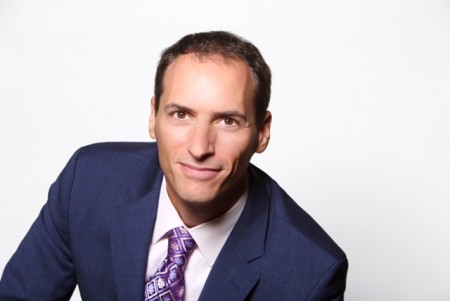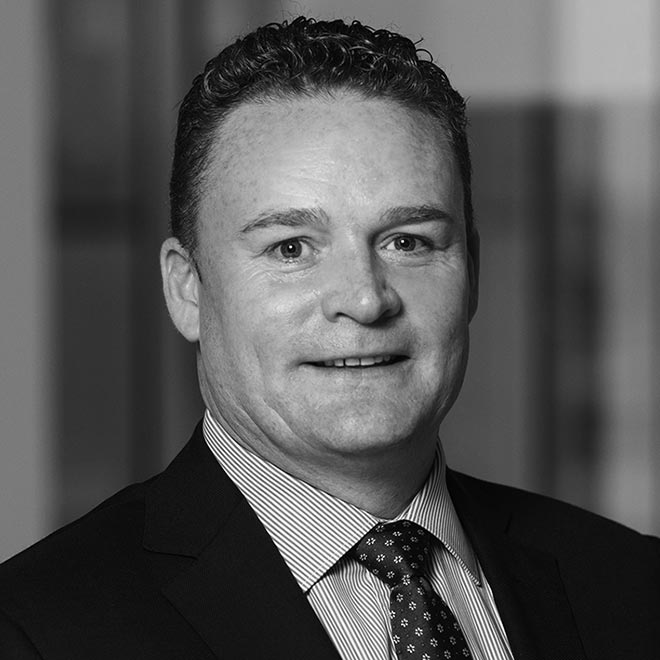Firms of the future: Equity partner says it's 'all about helping clients' and adapting to the marketplace

Ari Kaplan. Photo by Lauren Hillary.
Ari Kaplan recently spoke with Paul Fontanot, the national practice group leader for forensic and technology services at Clayton Utz in Sydney. He is an equity partner in the firm, although he is not a lawyer.
Ari Kaplan: Tell us about your background and your role at Clayton Utz.
Paul Fontanot: I am a chartered accountant and was with Ernst & Young for just over 21 years. I have always been in the forensic and technology space, including fraud investigations and litigation support. I thought that coming to a law firm would be something a little different, and I was very interested in what legal teams were doing in Australia. First, law firms don’t often invest as much in technology as the Big Four, so I saw an opportunity to help grow a team within Clayton Utz based on technology. Second, the Big Four are all getting back into law, which is prompting law firms to adjust and develop consulting-type practices, which I was interested in helping to create. Third, there is a great opportunity to help law firms reassess their business model and establish a practice that not only complements the firm’s focus but also helps clients address other critical and complex business issues in one full-service firm.
Ari Kaplan: What services does the forensic and technology group provide?
Paul Fontanot: Our consulting-type services are quite wide and varied. They include corruption investigations, HR bullying and harassment matters, and most disputes that require collecting information. Our focus is on analyzing data and providing guidance to our legal teams to help them take legal action, regardless of whether it is disciplinary, civil or criminal. Our technologists and accountants collaborate to gather that information. I also serve as a shadow or consulting expert to help assess some of the accounting claims. In addition, we support e-discovery, document management and review, and cyber incidents. It is a wide-ranging service offering predicated on a different skill set and through the use of technology.
Ari Kaplan: Are your peer firms commonly providing these types of services?
 Paul Fontanot. Photo courtesy of Clayton Utz.
Paul Fontanot. Photo courtesy of Clayton Utz.
Paul Fontanot: We see legal teams that offer e-discovery support, but they often lack an in-house technology solution, which they typically outsource to a third-party provider. We perform all of that work internally because it provides an opportunity to analyze data in different ways to support our clients and legal teams. While lawyers are very adept at conducting regulatory investigations or analyzing corporate fraud, they are not generally collecting and identifying sources of information, which they outsource to the Big Four or a boutique investigations firm.
Ari Kaplan: What are the skill sets that your group represents and are most of the members lawyers?
Paul Fontanot: Our team has just over 140 professionals, most of whom are data scientists, mathematicians, actuaries, accountants, IT specialists and IT forensic experts. The majority of them are not lawyers, though we have the support from our lawyers across many other practice groups.
Ari Kaplan: What effect is sharing equity with professionals who are not lawyers having on law firms?
Paul Fontanot: Being an equity partner has helped me settle into the firm in terms of being part of the partnership, gaining a seat at the management table, and interacting with my fellow partners as peers working together. And we have had huge successes in the last three years in solving our clients’ complex problems, which might not necessarily be legal issues, yet are certainly big business concerns. The benefits have been so great that one of my technology staff directors has just been promoted to partner, and he went through the normal process of vertical partnership approval just like any lawyer.
Ari Kaplan: Why move from consulting to law as opposed to continuing the trend in the other direction?
Paul Fontanot: If we predict where professional services firms could go in the next five to 10 years, it is all about helping clients, who are very sophisticated buyers that know their issues and are looking for a one-stop, robust consulting or law firm to support them. If we get the technology, the people and the process right, Clayton Utz can help its clients as a single professional services firm. It has been an amazing journey over the last three years, and I suspect that other law firms will be changing their business model to compete not only with the Big Four but even with in-house counsel themselves, who are developing their own internal teams. Law firms need to adapt to what is happening in the marketplace.
Ari Kaplan: What does the future composition of professional services firms, including legal practices look like?
Paul Fontanot: Involving multidisciplinary skill sets is a must. Whether that is in the partnership or as part of another business unit, it is reflective of changes in the marketplace in technology and client sophistication. In the next five to 10 years, you will see a lot more professional services firms adapting, with accounting firms converting into broader consulting firms and law firms will be referred to as multidisciplinary practices.
Listen to the complete interview at Reinventing Professionals.
Ari Kaplan regularly interviews leaders in the legal industry and in the broader professional services community to share perspective, highlight transformative change and introduce new technology at his blog and on iTunes.



